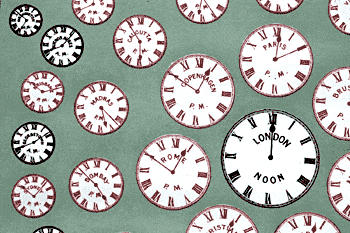Billions of us around the world have become accustomed to a yearly ritual of winding our clocks forward in the spring, and back again in the autumn. In the early hours of Sunday morning, this bi-annual meddling of time started up again, bringing with it an age old argument.
Modern timekeeping
In the UK, Greenwich Mean Time (GMT) is observed during the winter months and an hour is loaned during British Summer Time (BST).
British Summer Time – also called Daylight Savings Time (DST) – takes an hour of our sleep and gives it back some months later that year. In reality no time is gained or lost, rather, better use of the extra daylight that is temporarily available to us by is made ( by shifting an hour of sunlight during summer months, normally between March – October).
DST was first suggested as a means to making the most of daily sunlight. In 1784, US inventor and poitician Benjamin Franklin wrote a satirical letter to the Journal of Paris calling for the clocks to go forward during summer months. He said this would allow Parisians to take advantage of the natural morning light for longer, thereby economising on candle use.
Morning vs. Evening
This thrifty use of natural morning light, by loaning an hour and making mornings darker (when most people sleep through and miss valuable light) is instead economised by making evenings lighter and longer, when the majoirty of people are up and about.
To this day, individuals, businesses and governments are still debating the scheme‘s worth and whether they should adopt DST throughout the entire year. This would end gloomy winter evenings, making it feel a bit more like summer all year round.
Does or meddling make or kill time?
In business terms, the adoption of Daylight Savings Time (DST) on a permanent basis, is pretty straight forward as we‘d essentially be aligning UK watches with clocks across the continent.
This would therefore bring the UK in line with Central European Time, which would mean that London would work the same business hours as Brussels, Paris, Frankfurt and Milan.
For businesses that operate internationally, this could cut down staff ovetime costs to communicate internationally, as well as removing scheduling confusions, from conference calls to deliveries.
This time loan would also give the UK an extra hour of overlap with Beijing, Tokyo and other major import and export markets in the growing economies of Asia.
A report from 2010 also claimed that people would gain an extra 235 hours of post-work daylight each year. For retailers this extra hour of sunshine per evening, means longer time spent shopping and a potential 235 more hours spent shopping while on DST than -235 hours while on GMT.

















